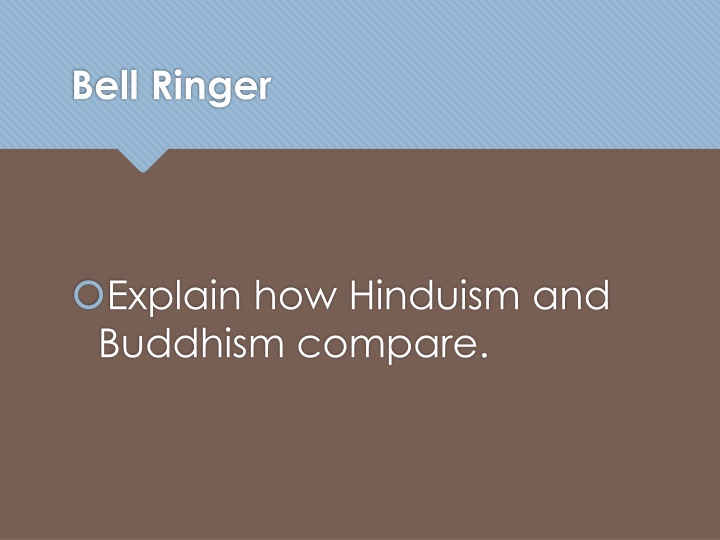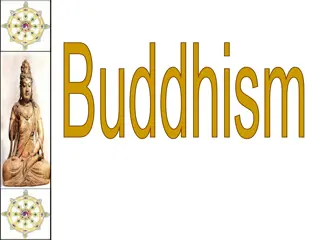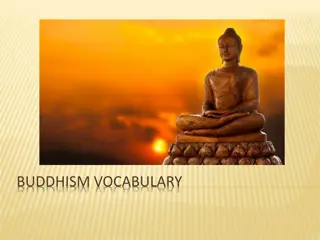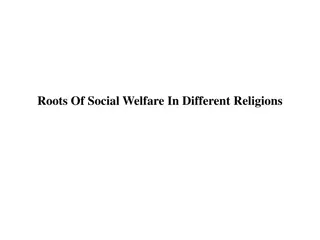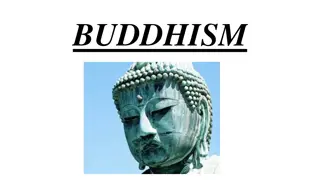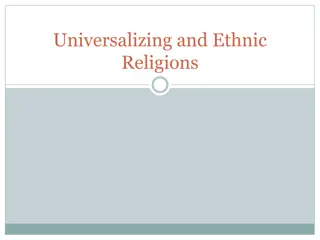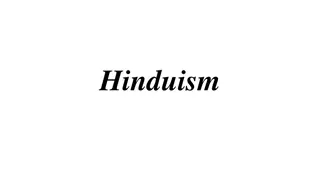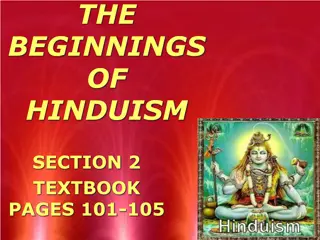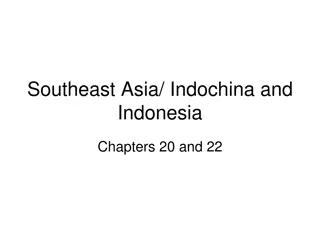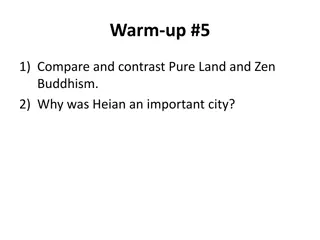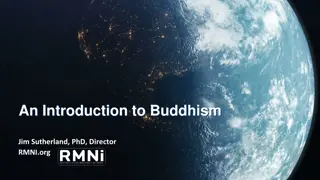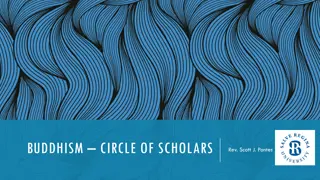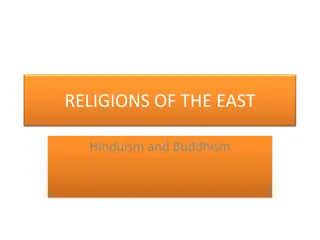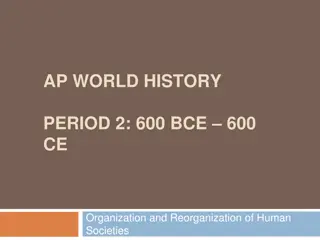A Comparison of Hinduism and Buddhism
Hinduism and Buddhism are two major religions originating from India with key differences and similarities. Hinduism is polytheistic and focuses on dharma, karma, and moksha, while Buddhism emphasizes the Four Noble Truths and the Eightfold Path to achieve Nirvana. Both religions advocate for spiritual growth and enlightenment but have distinct practices and beliefs.
Download Presentation

Please find below an Image/Link to download the presentation.
The content on the website is provided AS IS for your information and personal use only. It may not be sold, licensed, or shared on other websites without obtaining consent from the author.If you encounter any issues during the download, it is possible that the publisher has removed the file from their server.
You are allowed to download the files provided on this website for personal or commercial use, subject to the condition that they are used lawfully. All files are the property of their respective owners.
The content on the website is provided AS IS for your information and personal use only. It may not be sold, licensed, or shared on other websites without obtaining consent from the author.
E N D
Presentation Transcript
Bell Ringer Explain how Hinduism and Buddhism compare.
Standard: SSWH2 The student will identify the major achievements of Chinese and Indian societies from 1100 BCE to 500 CE
Element C Describe the development of Chinese civilization under the Zhou and Qin.
Essential Question How do the Zhou and Qin Dynasties compare?
BACKGROUND ON CHINA
The Geography of China 1.China was the most isolated of the civilizations. 2.Long distances and physical barriers separated China. 3.Believed China was the center of the earth & the only civilization. 4.Began in a river valley, the Huang He.
The Geography of China cont. 1.River valleys emerged along A.Yellow(Huang Ho) earliest civilization - damaging floods B. Yangtze- very important in unification- transportation- irrigation
Chinese civilization took shape under the Shang. Shang Dynasty (1650 B.C. 1027 B.C.) Established by Nomads Established 1stDynasty. . Developed written language. Decline led to the rise of Zhou and the Dynastic Cycle.
China under the Zhou Dynasty
The Zhou Dynasty 1027BCE to 256 BCE 1. Overthrew the Shang. 2. Promoted idea of Mandate of Heaven. 3. Population increased. 4. Set up feudal state. 5. Relied on Agriculture.
Mandate to Heaven 1. is based on four principles: a. The right to rule is granted by Heaven. b. There is only one Heaven therefore there can be only one ruler. c. The right to rule is based on the virtue of the ruler. d. The right to rule is not limited to one dynasty. 2. The Mandate of Heaven justifies rebellion as long as the rebellion is successful. Simply because if it was successful, obviously then, the new ruler had to have had a Mandate from Heaven.
The Dynastic Cycle in China The dynastic cycle refers to the rise and fall of dynasties
Cultural Achievements Discovered silk. (ancient Chinese secret). Made the first books from wood or bamboo. Studied the movement of planets and recorded eclipses of the sun. Developed accurate calendar with 365 1/4 days. Made remarkable achievements in the art of bronzemaking.
Home Work Page 65 questions 3-5 Due Friday September 16
Closing: Review. 1. Q @ A.
